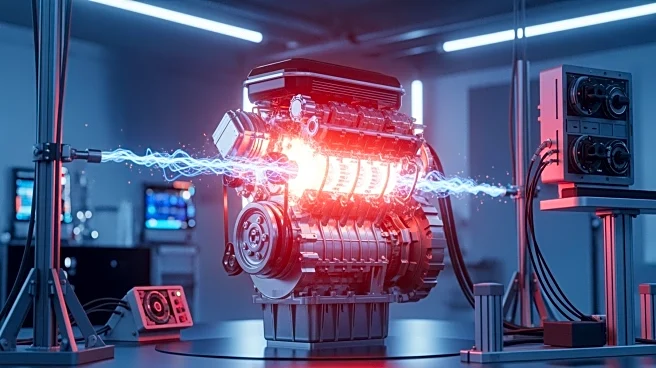What's Happening?
Researchers at King's College London have developed a particle engine that reaches temperatures hotter than the sun's core. This groundbreaking experiment aims to explore the laws of thermodynamics on a microscale.
The engine, known as a Paul Trap, converts heat into mechanical energy, and its behavior sometimes contradicts traditional thermodynamic laws. For instance, the engine occasionally cools down instead of heating up when exposed to warmer temperatures, due to thermal fluctuations unique to the microscale. This research could enhance understanding of thermodynamics and potentially lead to innovative treatments for diseases by improving knowledge of protein folding.
Why It's Important?
The development of this particle engine is significant as it challenges established thermodynamic principles, offering new insights into energy conversion processes at a microscopic level. Understanding these processes could have far-reaching implications for various fields, including medicine and engineering. By studying thermal fluctuations, scientists may develop new methods for disease treatment, particularly in understanding protein folding, which is crucial for many biological functions. This research also contributes to the broader scientific knowledge of energy systems, potentially influencing future technological advancements.
What's Next?
The next steps for the King's College London team involve further experimentation to validate their findings and explore practical applications of their research. They may collaborate with other scientific institutions to expand the scope of their study and investigate potential uses in medical and engineering fields. Additionally, the team might seek funding to support ongoing research and development, aiming to translate their theoretical insights into real-world applications.
Beyond the Headlines
This research highlights the importance of challenging established scientific principles to foster innovation. The study of thermodynamics at a microscale could lead to a paradigm shift in how energy systems are understood and utilized. Ethical considerations may arise regarding the application of such technologies, particularly in medicine, where the implications of manipulating protein folding must be carefully evaluated.










